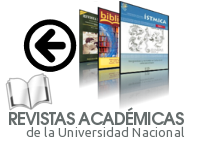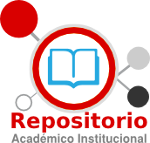Social Studies’ Teaching in the Era of Quality Education
DOI:
https://doi.org/10.15359/rp.20.2Keywords:
Social Studies, pedagogy, learning, history, qualityAbstract
This essay explores the basic principles of quality education’s discourse and the skill-based learning model and the impact on social studies subject-matter and therefore on the way in which the subject considers the relationship between historical knowledge, citizenship and thought. To support these ideas, I review the current education policy, the national curriculum and the curriculum of the subject. The result is a brief characterization on three issues: the distortion of thought relegated to skills, the confusing theoretical foundation of the program to adapt categories such as historical time and geographical space to the demands of the skills curriculum and the technification of learning.
References
Banco Mundial. (2018). Informe sobre el sobre el desarrollo mundial 2018: Aprender para hacer realidad la promesa de la educación. doi:10.1596/978-1-4648-1096-1
CEPAL. (1990). Transformación productiva con equidad. CEPAL. http://repositorio.cepal.org/handle/11362/2102
De Sousa Santos, Boaventura. (2006). De la mano de Alicia: Lo social y lo político en la postmodernidad. Siglo del Hombre Editores.
Elliott, John. (1994). The Teacher’s Role in Curriculum Development: An Unresolved Issue in English Attempts at Curriculum Reform. Curriculum studies, 2(1), 43-69. http://dx.doi.org/10.1080/0965975940020103.
Fallace, Thomas. (2017). The Intellectual History of the Social Studies Research. En M. McGinn, & C. Mason (Edits.), The Wiley Handbook of Social Studies Research. John Wiley & Sons, Inc.
Horkheimer, Max. (2003). Teoría crítica. Amorrourtu.
Jorgensen, C. Georgenssen. (2014). Social Studies Curriculum Migration: Confronting Challenges in the 21st Century. En E. W. Ross (Ed.), The Social Studies Curriculum. Purposes, Problems, and Possibilities. (pp. 3-24). SunyPress.
Körber, Andreas. (2015). Historical consciousness, historical competencies – and beyond? Some conceptual development within German history didactics. Deutsches Institut für Internationale Pädagogische Forschung, Hamburg. http://www.pedocs.de/volltexte/2015/10811/pdf/Koerber_2015_Development_German_History_Didactics.pdf.
Leiva, Fernando. (2008). Latin American Neostructuralism. The Contradictions of Post-Neoliberal Development. University of Minnesota Press.
Levesque, Sthepane. (2008). Thinking historically: Educating students for the twenty-first century. University of Toronto Press.
Ministerio de Educación Pública. (2015). Educar para una nueva ciudadanía: Fundamentación de la transformación curricular costarricense. http://www.idp.mep.go.cr/sites/all/files/idp_mep_go_cr/publicaciones/7-2016_educar_para_una_nueva_ciudadaniafinal.pdf.
Ministerio de Educación Pública. (2016). Programas de estudio de Estudios Sociales Tercer Ciclo de la Educación General Básica y Educación Diversificada. Gobierno de Costa Rica, San José. https://www.mep.go.cr/sites/default/files/programadeestudio/programas/esociales3ciclo_diversificada.pdf.
Ministerio de Educación Pública. (2017). Política educativa. La persona: Centro del proceso educativo y sujeto transformador de la sociedad. https://www.mep.go.cr/sites/default/files/page/adjuntos/politicaeducativa.pdf.
Pagés, Joan. (2009). Enseñar y aprender ciencias sociales en el siglo XXI: Reflexiones casi al final de una década. Investigación en Educación, Pedagogía y Formación Docente, II Congreso Internacional (Libro 2, pp. 140-154) Universidad Pedagógica Nacional, Universidad de Antioquia, Corporación Interuniversitaria de Servicios.
Pinar, William. F. (2015). Educational experience as lived: Knowledge, history, alterity: the selected writings of William F. Pinar. Routledge.
Plá, Sebastián. (2014). Calidad educativa y didáctica de la historia en los gobiernos neoconservadores en México 2000-2012. Revista Tempo e Argumento, 6(11), 162-192. http://dx.doi.org/doi:10.5965/2175180306112014162.
Plá, Sebastián. (2018). Calidad educativa : Historia de una política para la desigualdad. UNAM/IISUE.
Plá, Sebastián., & Pagés, Joan. (2014). La investigacion en la enseñanza de la historia en America latina. Bonilla Artigas.
Programa Estado de la Nación en Desarrollo Humano Sostenible. (2019). Séptimo Informe Estado de la Educación. https://www.uned.ac.cr/viplan/images/cppi/documentos/ESTADO-EDUCACION-2019-WEB.pdf
Programa Estado de la Nación-BID. (2018). Costa Rica: El estado de las políticas públicas docentes. https://observatorioeducacion.org/sites/default/files/el-estado-de-politicas-publicas-abril-15.pdf.
Ross, E. Wayne., Mathison, Sandra., & Vinson, Kevin. D. (2014). Social Studies Curriculum and Teaching in the Era of Standardization. En E. W. Ross (Ed.), The Social Studies Curriculum. Purposes, Problems, and Possibilities (pp. 25-50). SunyPress.
Thornton, Sthepen. J. (2017). A Concise Historiography of the Social Studies. En M. McGlinn, & C. Mason (Edits.), The Wiley Handbook of Social Studies Research (pp. 9-41). John Wiley & Sons, Inc.
Young, Michael. (2010). The future of education in a knowledge society: The radical case for a subject-based curriculum. Journal of the Pacific Circle Consortium for Education, 22(1), 21-32.
Downloads
Published
How to Cite
Issue
Section
License
Los autores que publican en esta revista están de acuerdo con los siguientes términos:
a) Los autores conservan los derechos de autor y garantizan a la revista el derecho de ser la primera publicación del trabajo bajo una Licencia Creative Commons Atribución-NoComercial-CompartirIgual 4.0 Internacional (https://creativecommons.org/licenses/by-nc-sa/4.0/) que permite a otros compartir el trabajo con un reconocimiento de la autoría del trabajo y la publicación inicial en esta revista (componente BY o atribución). Coincidente con la política de Acceso Abierto, no se podrán hacer usos comerciales de los contenidos publicados por esta revista (componente NC). Se permitirán las obras derivadas (remezcla, transformación o creación a partir de la obra original) siempre y cuando sean distribuidas bajo la misma licencia de la obra original (componente SA).
b) Los autores pueden establecer por separado acuerdos adicionales para la distribución no exclusiva de la versión original de la obra publicada en la revista (por ejemplo, situarlo en un repositorio institucional o publicarlo en un libro), siempre y cuando: a) sea reconocida la publicación original en esta revista (componente BY); b) no se haga uso del material de reuso con propósitos comerciales (componente NC); c) el material de reuso sea distribuido bajo la misma licencia de la obra original (componente SA).
c) Se permite y se anima a los autores a difundir sus trabajos electrónicamente (por ejemplo, en repositorios institucionales o en su propio sitio web) antes y durante el proceso de envío, ya que puede dar lugar a intercambios productivos, así como a una citación más temprana y mayor de los trabajos publicados (Véase The Effect of Open Access) (en inglés).


_11.55_.09_a_._m_._.png)
_1.34_.01_p_._m_._2.png)
_9.45_.02_p_._m_._.png)




_2.23_.09_p_._m_._.png)
_2.35_.17_p_._m_._.png)

